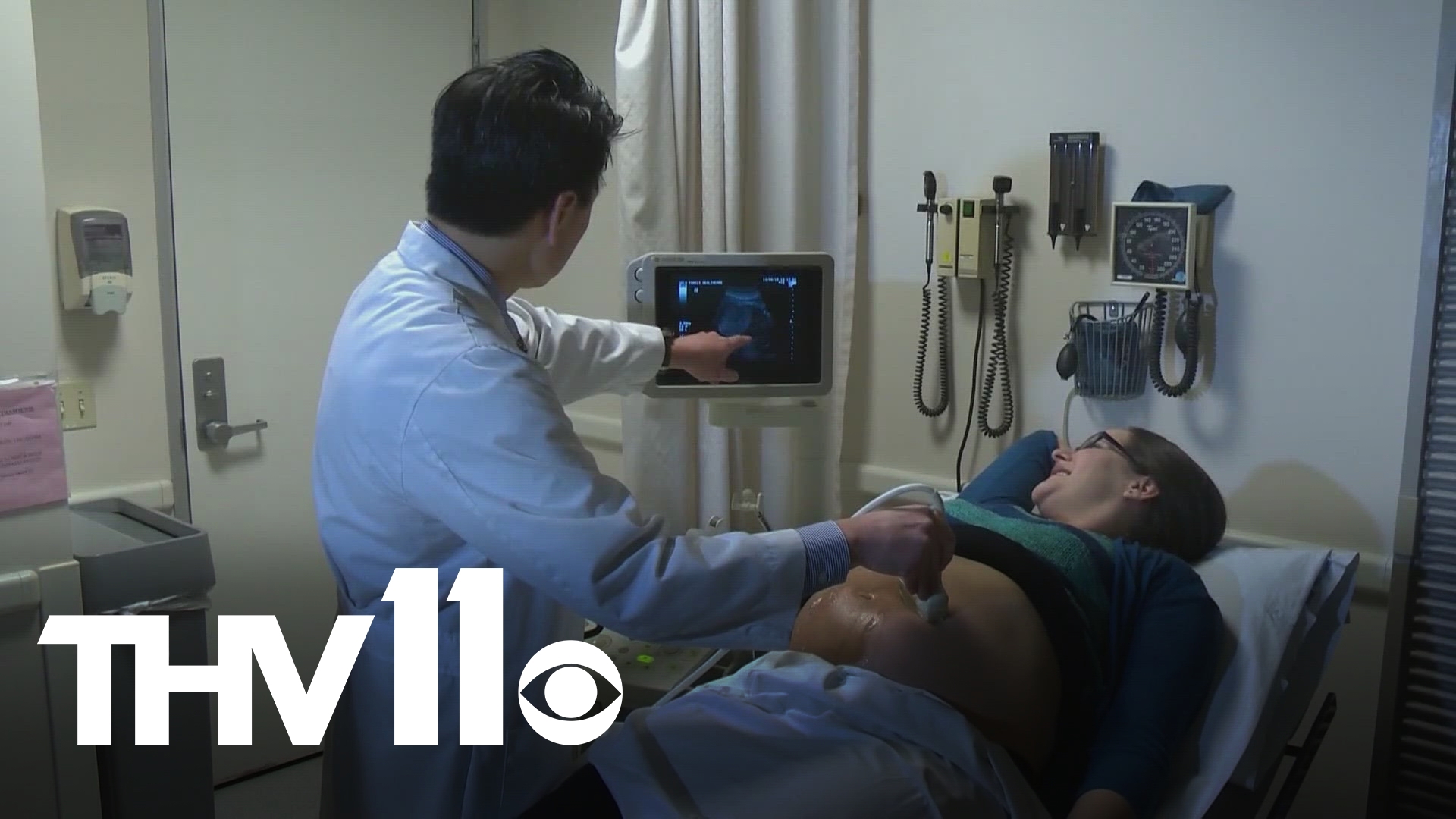LITTLE ROCK, Ark. — Rural hospitals across Arkansas are having to make tough decisions, which could impact future generations.
In August, Unity Health Newport announced that they would "discontinue labor and delivery services" for residents in the area.
CHI St. Vincent Infirmary in Little Rock was the state's last reported hospital to stop its labor and delivery services in 2019.
According to the Arkansas Center for Health Improvement, a February 2024 study identified 35 hospitals that provide labor and delivery services.
The news of Unity Health Newport's discontinuation now makes it 34.
"Labor and delivery is an expensive service to run," said Cara Osborne, senior fellow for health and wellness at Heartland Forward. "It sort of always has been, especially for hospitals that do a relatively low number of births every year."
In addition to costs, rural hospitals also experience staff and workforce shortages due to the loss of nurses, physicians and nurse midwives.
Osborne said those issues make it even more challenging for mothers who might be close or even going into labor—leaving them with options of traveling further distances to receive proper care.
"Every time a unit closes, that means that the moms who had been driving to that facility that was their nearest facility now have to go even farther at one of the most vulnerable times in their lives," Osborne said.
These issues, Osborne said, leave mothers questioning "childcare, access to a car, gas for that car, whether or not they can take off work," and much more. With the closures of labor and delivery units, the situations mothers face in rural areas are "more than just labor itself."
When it comes to finding solutions, health officials like Nicolle Fletcher, co-founder and executive director of Ujima Maternity Network, said Arkansas has the resources; you have to know where to look.
"It is the access to those resources that is challenging for some and doulas can help bridge that gap," Fletcher said.
Doulas are among the many resources available for pre and post-partum mothers needing extra support.
Fletcher said that doulas provide "advocacy for families, informational, physical, and emotional support."
If a mother were to find herself without a nearby facility to seek assistance during her pregnancy, Fletcher explained that doulas also have the ability to transport a mother when they need it.
"Let's grab some CHWs, and let's do some transportation that are in this area," Fletcher said. "Let's see if there are nurse practitioners in your community who can meet your needs. So it's just looking at what's in this community and what resources are available."
The solution is within mothers' reach through the work of midwives, doulas and others. Still, Fletcher said there is much more work to be done in efforts to decrease stress and maternal mortality rates, which could be tied to the lack of resources in rural communities.
"None of this work happens in isolation, and we're not going to improve unless we collaborate, Fletcher said. "This is an opportunity to collaborate and look at the resources in specific areas."

